Rangers: Victory for King will only be first step in rebuilding job
- Published

Former Rangers captain Richard Gough is a friend of Dave King, pictured between Paul Murray and John Gilligan
The struggle for control of Rangers turned into an epic saga, but battle weariness will not be allowed to accompany the incoming directors through the front doors at Ibrox.
Dave King, Paul Murray and John Gilligan face a rebuilding challenge that makes the fight to enter the boardroom seem like merely setting up base camp at the foot of Everest.
There are still dramas to be played out, not least when Derek Llambias and Barry Leach will finally join David Somers and James Easdale in departing from the beleaguered current board. Before they leave, Llambias and Leach must appoint the three new directors, or face the prospect of being held financially accountable for the costs of holding Friday's General Meeting when they have already conceded that King has enough shareholder votes for his resolutions to change the Ibrox board.
Once that formality is complete, issues will jostle for priority. Plans will be in place, since many of the challenges are already known, but as well as the extensive renovation work required at the club, there are other matters to address.
Inside the boardroom
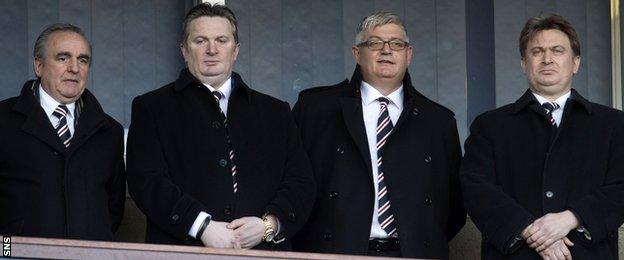
The position of Sandy Easdale (2nd from left), the chairman of the club's football board is unclear, while his brother James (right) has resigned and Derek Llambias (left) and Barry Leach have so far refused to step down
King has already made it clear that further appointments will be made to the board. The likelihood is that some form of fan representation will be introduced, and there is also expectation that the group of aligned shareholders - Douglas Park, George Letham and George Taylor, who own 19.49% between them - will also be represented.
Once a properly constituted board is in place, WH Ireland, the nominated advisor (Nomad) company that manages Rangers International Football Club's listing on the Alternative Investment Market, will be replaced. King maintains that he has a replacement lined up, but the handover process needs to be worked through.
Executive management appointments will also need to be made, once Llambias and Leach have relinquished their chief executive and finance director roles respectively. One of the directors can temporarily take on executive duties, but the search for candidates to fill the critical management roles that will implement the board's strategy will need to begin swiftly.
Sandy Easdale may also be a lingering presence. The chairman of The Rangers Football Club board has so far not indicated what his intentions are, despite his brother James resigning from the RIFC board last week. Sandy Easdale owns 6.45% of RIFC and has held proxy votes for a further 19.67%, but the antagonism between the Greenock businessman and King, as well as many of the Rangers fans, means that his position at the club will be considered untenable.
Outside the boardroom
Replacing the Nomad is only the first regulatory challenge for the incoming board to address. King and Murray sat on the board of Rangers Football Club plc, which Craig Whyte put into administration in February 2012; it then entered liquidation in October 2012.
Section 216 of the Insolvency Act prevents directors of a company that enters liquidation from becoming directors of a company with a similar name. King has applied to the Court of Session for permission to become a director of Rangers International Football Club.
Murray was removed by Whyte before administration, and publicly called into question Whyte's suitability to own RFC plc. However, under the Scottish Football Association's fit and proper person criteria, his place on the board of a club that went into administration within the last five years means that he has to seek approval from the governing body to take up his directorship.
The same applies to King. Whyte tried to remove him from the board, but King stayed in place until after administration, during which time he passed information on to the relevant authorities about events at Ibrox.
King also breaches another of the SFA's fit and proper person criteria, following his decade-long legal battle with the South African Revenue Services. The settlement was a tax bill of more than £40m, while King was also convicted of 41 breaches of the Income Tax Act that resulted in a cumulative fine of around £186,000. Had the fine not been paid, each breach carried a two-year jail tariff.
The SFA will not prejudge King's case, and he is entitled to present evidence and speak on his own behalf to the Professional Game Board. He has written confirmation from SARS that they have no issue with him holding directorships in South Africa - King is executive chairman of Micromega, which counts the South African government amongst its major clients - where the Companies Act mirrors its UK equivalent. The SFA's criteria were drawn up to allow the governing body to protect clubs from individuals who might not act in their best interests.
Finances
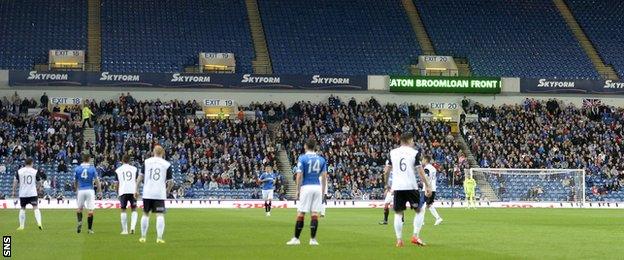
The new Rangers regime will be hoping the fans return to Ibrox
Rangers do not generate enough income to meet the running costs. That has been exacerbated by around 15,000 fans not buying season tickets and often staying away from individual matches. Attendances are likely to rise again following the appointment of the new board, but that will still leave financial concerns.
Llambias and Leach have started the process of due diligence ahead of drawing down the second £5m tranche of a loan provided by Sports Direct. The first £5m was secured against various property and trademark assets, as well as providing Sports Direct with a larger shareholding in Rangers Retail, a commercial joint venture. For the duration of the loan, Sports Direct, who are owned by Mike Ashley, are entitled to nominate two directors, which they have not yet exercised.
The dynamic between King and Ashley will be intriguing. When Llambias, the former managing director of the club Ashley owns outright, Newcastle United, was appointed, it was announced to the Stock Exchange that this was under the terms of a loan provided by MASH, Ashley's investment company. Leach left his position as an executive at Sports Direct to take on his role at Ibrox.
The deal with Rangers Retail has a further five years to run, which means that even if the Sports Direct loan is paid off, Ashley will continue to have a grip on part of the club's revenue streams.
The incoming directors need to raise multiples of the loan amount, though, since almost every aspect of the business requires investment, including Ibrox. A share issue is likely, although shareholders at last December's annual general meeting only granted permission for new shares to be issued to existing shareholders. The incoming directors have estimated that it will take upwards of £20m and up to five years to fully restore the club, although the investment will need to be on a sustainable basis so that the club can move to a position where it lives within its means.
On the park
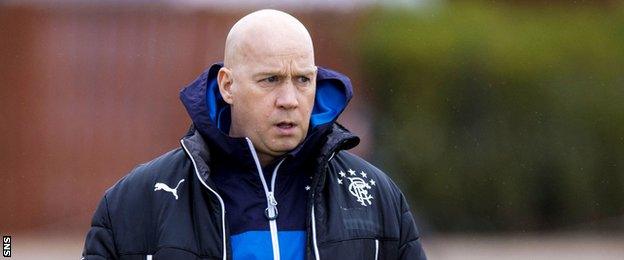
Rangers manager Kenny McDowall is serving a 12-month notice period after handing in his resignation
Performances on the pitch are hardly incidental, particularly when the team's form has been inconsistent and other play-off contenders have been impressing. Kenny McDowall has never looked wholly comfortable as an interim manager who is working his 12-month notice period, and a change of manager might bring short-term benefits.
It might be a temporary appointment, to allow a new manager capable of shaping the club's philosophy and rebuilding work to be sought in the summer.
The rest of the football infrastructure also needs to be addressed, and a sporting director of some form is also likely, to establish a scouting network and oversee investment into the youth academy, and the performance, physio and medical teams.
A recruitment strategy is vital, since Rangers will either be building a new team for a return to the Premiership or a second season in the Championship, with many fans viewing the latter as a better option in the long-term since the rebuilding work can be carried out across three transfer windows rather than immediately exposing Rangers to top-flight opposition.
- Published3 March 2015
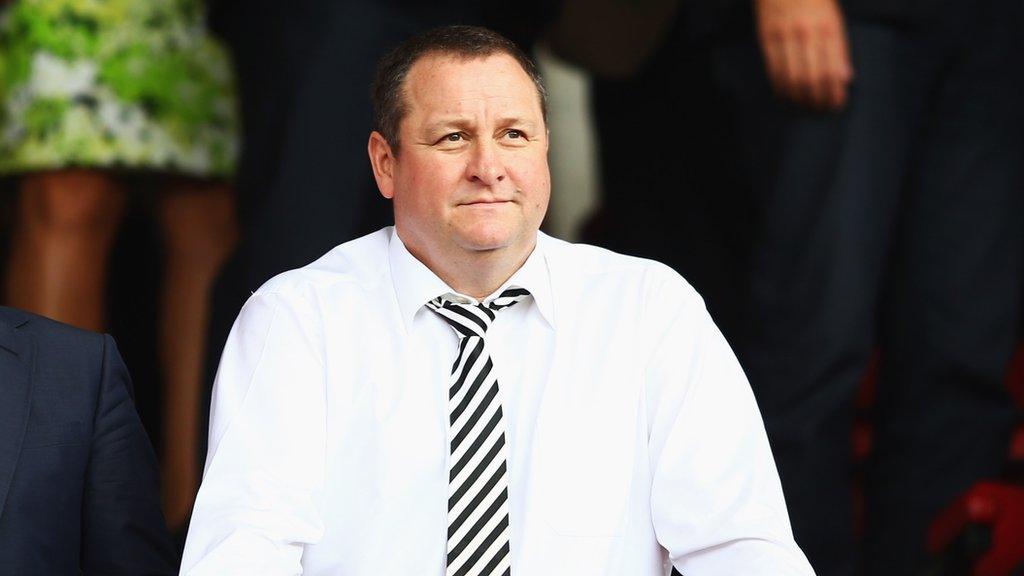
- Published3 March 2015
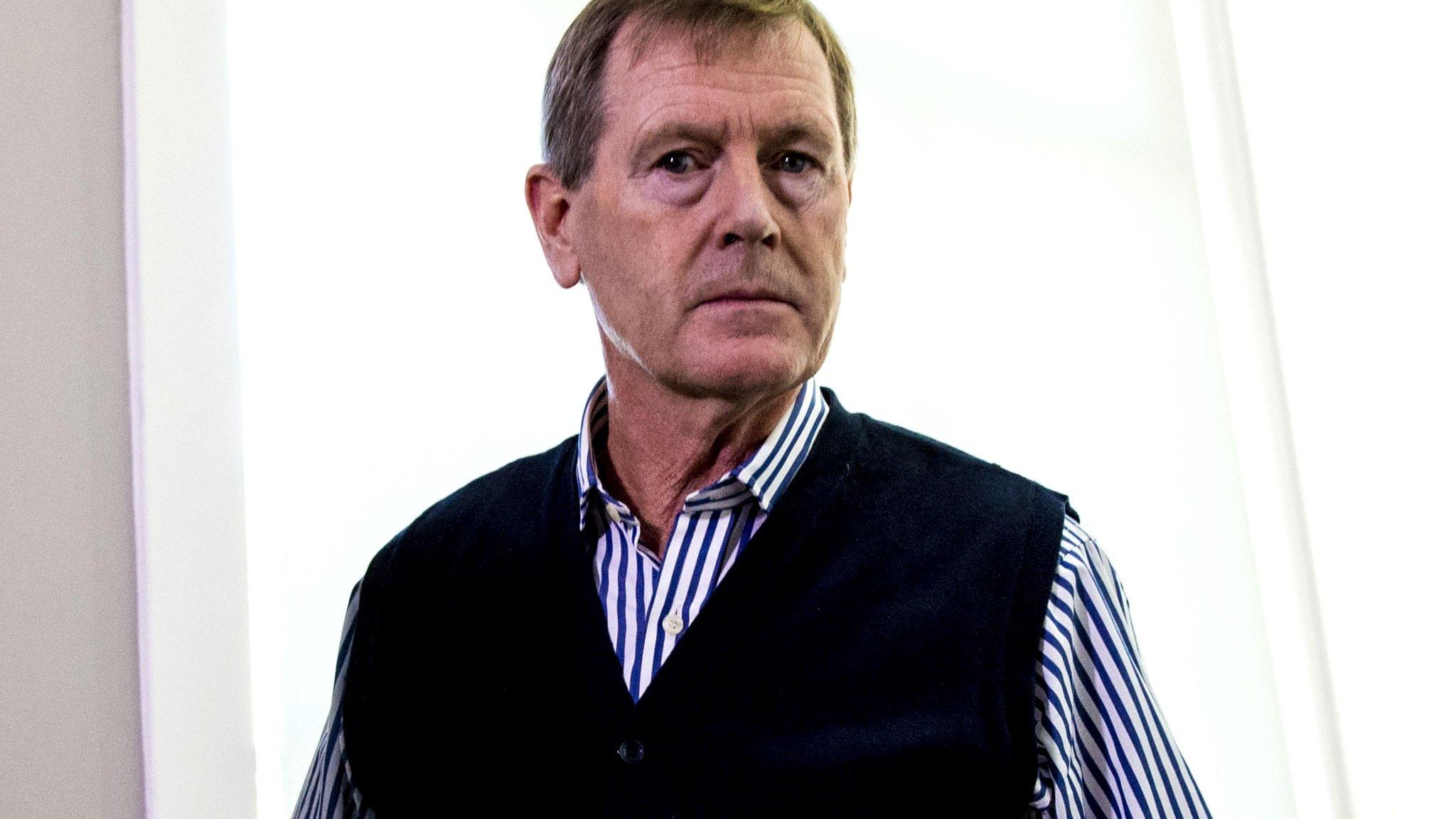
- Published3 March 2015
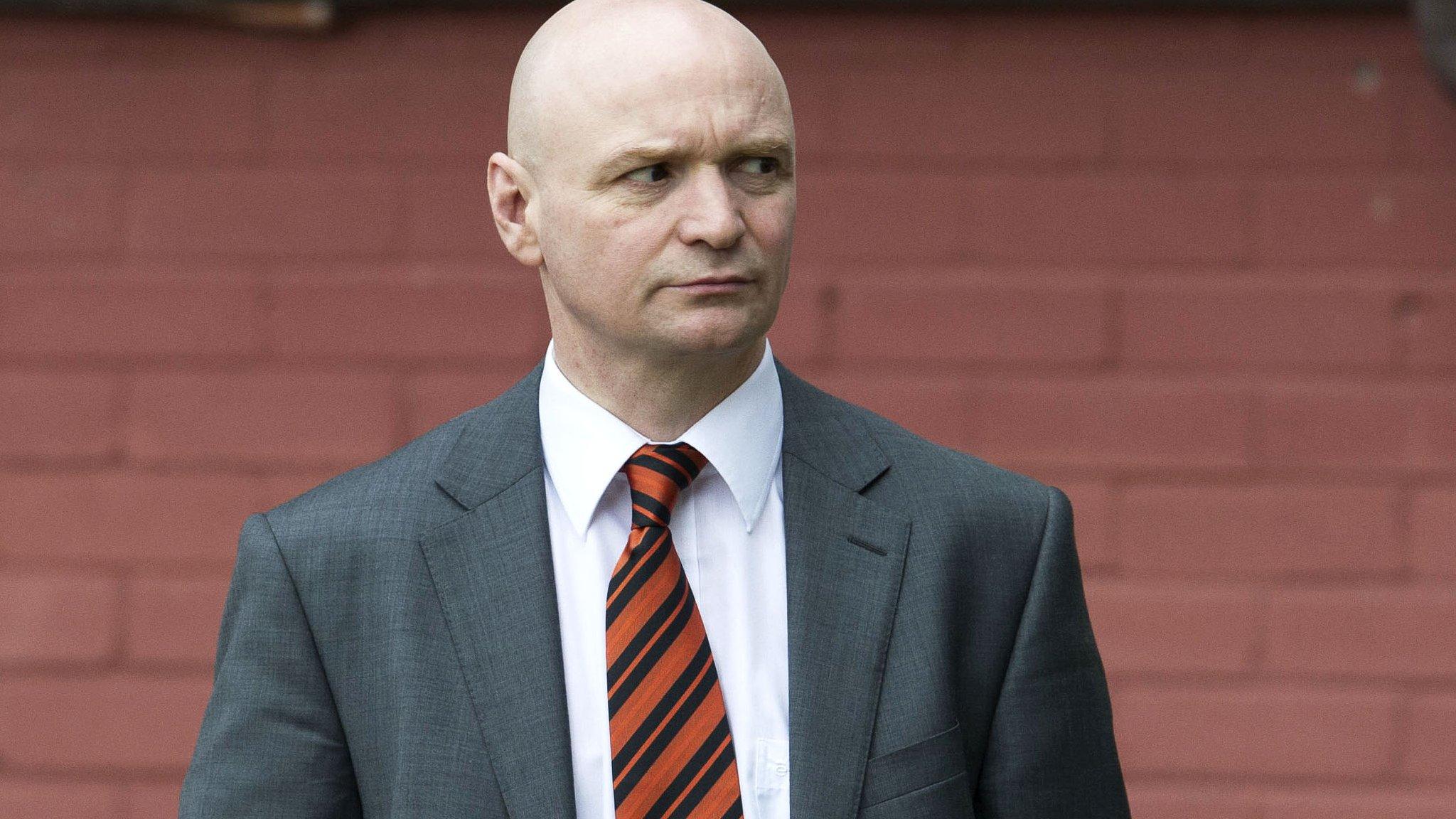
- Published3 March 2015
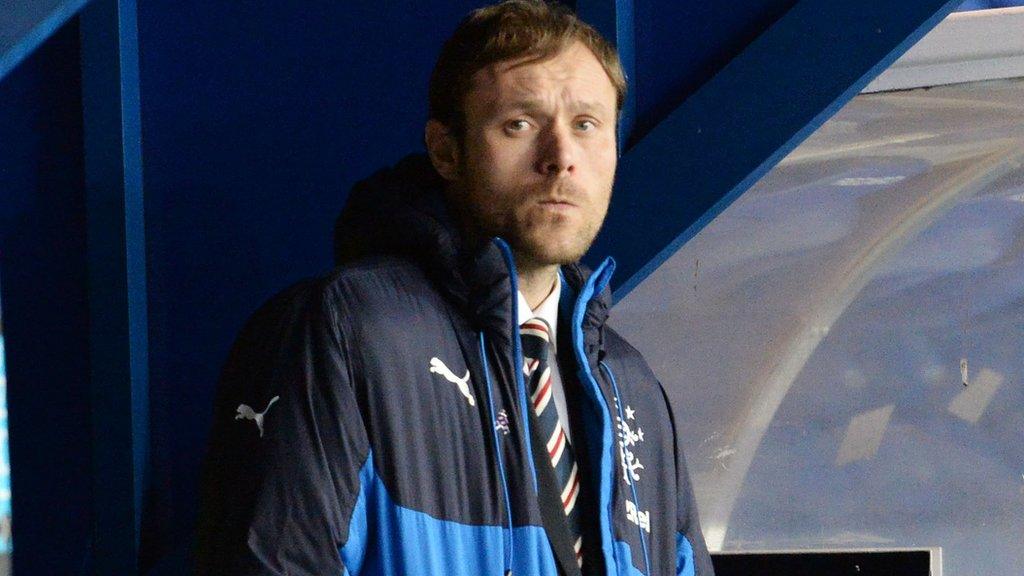
- Published20 June 2016

- Published7 June 2019
